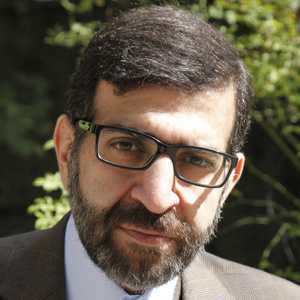What Next?

Yesterday (May 17 2010), after months of painstaking negotiations, an agreement between the leaders of Iran, Turkey, and Brazil led to the release of a nuclear communiqué confirming Iran’s agreement to a nuclear fuel exchange. According to the communiqué, Iran has agreed to send 1200 kilograms of its low-enriched uranium (LEU) to Turkey in return for 120 kilograms of twenty-percent enriched uranium—required for Tehran’s medical research reactor—within a year. This agreement, however, hinges on the approval of the Vienna Group—the U.S., France, Russia, and the IAEA—the presumed suppliers of any highly enriched uranium (to be used as fuel).
The Tehran agreement is the first step towards de-escalation of tensions between Iran and the UN Security Council. During recent months, the United States and its European partners have been straining nerves to pass a new sanction resolution against Tehran. On Friday, May 14, U.S. Secretary of State Hillary Clinton said that she believed no serious response would come from the Iranians before the next round of UNSC sanctions. In a similar tone, Russian President Dmitri Medvedev said that Brazilian President Lula had a thirty percent chance, at best, of success in negotiating an agreement in Tehran.
For Washington and its allies, the most desired outcome of the meetings in Tehran between Lula, Erdogan, and the Iranian government, would be failed negotiations that would pave the way for the passing of another sanction resolution and a tightening of the cordon around Iran. One of the first overseas reactions after the Tehran statement came from Tel Aviv, where Iran was accused of taking advantage of Turkey’s and Brazil’s goodwill. Obviously, Israel’s interests lie in the continuation of the nuclear crisis and for Tel Aviv, détente between Tehran and the global powers will undermine its interests in the long-term. (Meanwhile, the West may demand a modification of the Tehran Declaration. For example, while the declaration addresses the sending of 1200 kilograms of LEU outside the country, the U.S. is demanding that 1500 kilograms be delivered.)
In the current situation, Iran must heed the following:
1. Iranian political groups, without exception, should voice support for the Tehran Declaration. Although some analysts believe that the declaration should have been released earlier, in the current climate such talk is diversionary. The nuclear program is all about our national security and interests. Whatever our criticisms of the current administration, we must support Iran’s officials at this critical point. A flexible strategy –under the supervision of the Supreme Leader- signals the skills of the Iranian diplomatic body. In the meantime, citizens, the media, and political groups should be informed of the technical and legal aspects of the agreement.
2. The Tehran Declaration stresses Iran’s inalienable rights based on the Non-Proliferation Treaty. It is necessary to address in future agreements that the Tehran Declaration will be binding only if there are no further discussions of new sanctions by the UN Security Council. Otherwise, what will Iran have gained if the UNSC approves another round of sanctions? This must certainly be addressed in the likely upcoming joint declaration with the Vienna Group.
3. The Tehran Declaration brings to the fore nuclear cooperation vis-à-vis nuclear confrontation. Our diplomatic apparatus should exploit its full potential to create an opening for negotiations with the G5+1. Through constructive interaction (and with regard to our national rights) it should move towards the lifting of all sanctions against Iran and the clearing of Iran’s nuclear dossier in the UN Security Council. Iran’s dossier has been a pawn in the game—including paradoxical behavior and double standards—of some European states and Washington, turning from a legal case into one with political and security significances. Now it is time for Iran’s file to be dealt with as a technical issue, which inevitably places it in the hands of the IAEA. With Iran’s constructive gesture, the UN Security Council members should modify their approach towards Iran’s nuclear program and present a new narrative for themselves and for public opinion.
4. Under current circumstances, the most important thing to avoid is the expression of provocative remarks, which might only reinforce the position of Western states against the Islamic Republic.
5. Now that Turkey and Brazil have actively engaged with Iran’s nuclear program, their presence in Iran’s future talks with G5+1 seems necessary.
The nuclear negotiations are now at their most critical phase, one that calls for the vigilance of all Iranians and particularly our administration. Until full nuclear rights are achieved in an interactive climate free from controversy, awareness—with reliance on all our potentials and facilities—is the best virtue.

